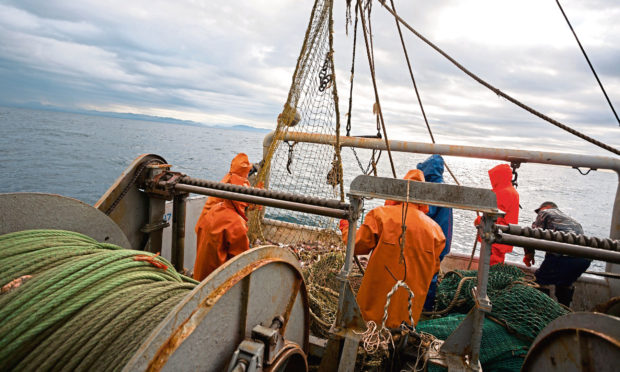A public-private partnership of industry experts, government representatives and scientists championing innovation in Scottish fisheries is to commission new research into greenhouse gas emissions from the nation’s fleet.
Fisheries Innovation Scotland (FIS) said it was also launching a study into digitalisation of the sector.
It is inviting expressions of interest (EoIs) from organisations around the world to take part in both projects, saying they will “help the Scottish seafood industry plan for a prosperous future”.
The EoIs are part of a two-stage process, in which applicants will be shortlisted for the opportunity to submit a full proposal.
FIS, which was launched by the Scottish Government in 2014 to help shape the future governance and management of fisheries north of the border, said the two studies would help it develop innovations with “tangible benefits” for the seafood sector.
Executive director Kara Brydson said: “FIS projects have industry expertise built in from the very beginning, so we asked for views on the most pressing innovation needs for Scottish seafood.
“Our members, which include catchers, processors and retailers, shortlisted these ‘critical questions’ and invited experts from outside of the seafood world to help us identify what projects could start supporting tomorrow’s industry today.
“Bringing these heads together led us to think about using digital tools to provide business and research intelligence, and increasing fishing efficiency while reducing emissions.”
She added: “FIS’s take on innovation is about shared opportunities and genuine collaboration to try new things. Who knows our industry better than the people driving it?
“But we also welcome specialists from beyond seafood to help us learn from other sectors and nations.
“FIS began speaking to stakeholders about their innovation priorities before the global pandemic, and we will keep listening as our industry recovers and adapts.”
Pitlochry-based FIS aims to draw up an inventory of the fleet in order to help it better understand greenhouse gas emission issues.
The inventory will be used to develop a practical tool to measure and validate changes in carbon use at an individual vessel level.
FIS said this data would help promote industry action to reduce carbon emissions, safeguard sector and business reputation, and allow businesses to maintain and access new markets.
Meanwhile, a digitalisation roadmap for Scottish fisheries, including an audit of the fleet’s current and future digital capabilities, is expected to provide business and research intelligence to fishers, scientists and managers.
FIS said the roadmap “must reflect stakeholder priorities” and consider all parts of the Scottish fishing fleet, from the inshore sector through to the largest vessels.
It added: “FIS invites expressions of interest from all types of organisation capable of generating new knowledge relevant to Scottish fisheries, and ensuring this can be used to generate change ‘on the water’.”
The EoI period closes on Monday December 14. A request for a full proposal will be sent to shortlisted partners by the end of the year.
